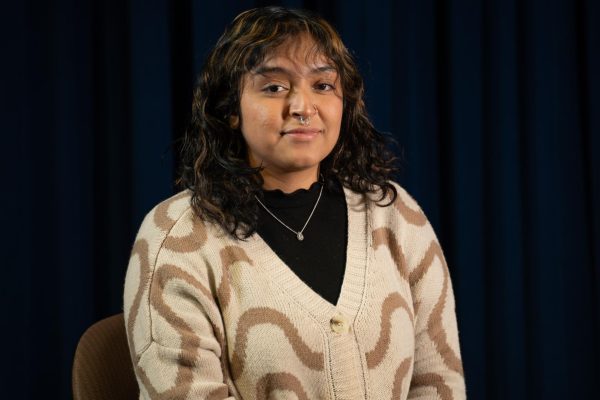Medical students have new access to a training program that focuses on better primary care for people with intellectual and physical disabilities and those with Limited English Proficiency (LEP).
The Health Resources and Services Administration (HRSA) has honored Rowan University’s Virtua School of Medicine (SOM) with a five-year grant on Friday, Sept. 15, 2023.
This grant has gone to the Regional Integrated Special Needs Center (RISN) and for the first year, they received $400,904. Potentially, the college could receive a total of $2,004,520 that comes at the end of the program.
Initially, this federal grant will train future primary care providers in treating patients with LEP by learning to communicate with them better. These providers will also be trained in caring for patients with intellectual and physical disabilities by identifying their needs through communication. Often with these groups, there have been a lot of primary care providers that don’t understand how they feel or what they need, failing to aid them.
The HRSA administration, the donor of the grant, has also given other donations to schools across the state. Their mission is to improve the services of primary care providers in underserved communities with a focus on giving training to represent those with LEP.
The HRSA Administrator Carole Johnson, who was present at Friday’s awards event was honored to give this opportunity to Virtua SOM. With this opportunity to train more primary care providers, Johnson speaks about her expectations for the future.
“As doctors, being familiar with the ADA [American with Disabilities Act] is an important need when focusing on communicating with patients with intellectual disabilities. They will leave the program masters in these skill sets,” said Johnson.
Johnson explained how each university competes against each other to place high enough to win an award. According to Johnson, Rowan’s performance was able to obtain them an award that resulted in a $400k grant.
In order to identify if they won or not, they go through what is known as the objective review process, where they are critiqued based on the group of students’ performances at their residency so if they perform well, they obtain the award.
“I hope to see more schools incorporate training programs that focus on teaching primary care providers on how to better address mental health to their patients. A lot of doctors are unfamiliar with how to discuss mental health efficiently with their patients,” Johnson said.
The Rowan-Virtua Regional Integrated Special Center (RISN), the Virtua SOM, and the Rita & Larry Salva School of Nursing and Health Professions are now all recipients of an HRSA grant. Richard Jermyn, Interim Dean of the Rowan-Virtua SOM, announced last week how accomplished the school is for the work they’ve done caring for underserved communities.
The Associate Professor of Writing Arts and Health and Science Communication Amy Reed, talked about how she believes this will improve the relationship between the patient and a primary care provider.
“Good communication is an essential part of good medical care. Unfortunately, the medical profession has a troubled history with disabled patients. Too often, disabled people have been excluded from medical care or have received substandard care based on the erroneous belief that their lives were not worth as much as the lives of able-bodied people,” said Reed. “Programs such as this one have the opportunity to rectify this situation first and foremost by naming and challenging embedded stigma.”
This has created a realization in the medical field that primary care providers should be more inclusive so people with disabilities have access to the right care. It’s important for everyone to have equal access to medical providers and to feel represented in the medical field. If there was more representation of people with intellectual disabilities and those with LEP in the primary care field, there could be potential to see doctors of all kinds taking care of the public.
Ariana Blake, a member of MEDLIFE at Rowan, believes that this training should be applied to more schools in order for everyone to be comfortable with seeking medical care.
“As a former national ambassador for the Rowan-Virtua SOM HCOP program, I was given the opportunity as a pre-med student to work with a med student to develop a project that aids underserved and low-income communities. The findings from this project affected me greatly as a pre-med student. Hence why I believe that the Rowan-Virtua SOM federal grant is a great opportunity for medical students to gain this new perspective and expose them to new cultures, regardless of their background,” said Blake.
This federal grant received by the HRSA is an important step for Rowan to take in creating students who will become more inclusive in their future careers, whether that is as a medical provider, journalist, a lawyer, or even an artist. Welcoming the underserved communities allows underrepresented groups to be heard.
For comments/questions about this story DM us on Instagram @thewhitatrowan or email [email protected]
























































































































































!["Working with [Dr. Lynch] is always a learning experience for me. She is a treasure,” said Thomas. - Staff Writer / Kacie Scibilia](https://thewhitonline.com/wp-content/uploads/2025/04/choir-1-1200x694.jpg)










































